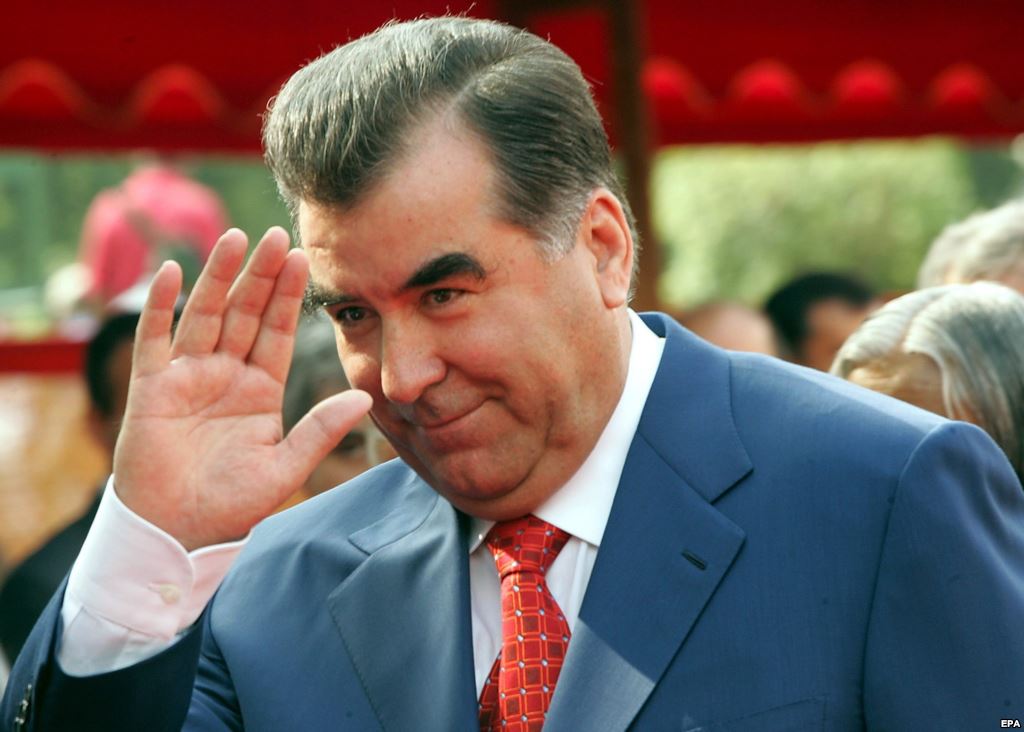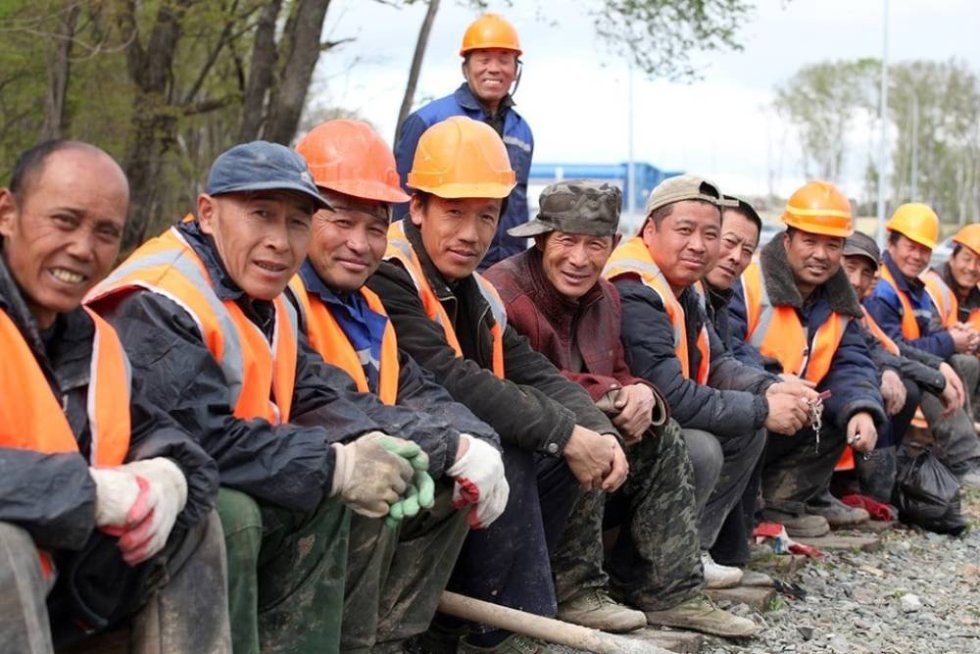
Emomalii Rahmon Reelected President of Tajikistan Amid Opposition Boycott
Emomalii Rahmon Reelected President of Tajikistan Amid Opposition Boycott
On November 6, Emomalii Rahmon was reelected to his fourth term as president of Tajikistan (BBC Tajik, November 7). The 61-year-old incumbent officially won 83.6 percent of the vote, defeating five candidates on his way to securing another seven-year term. More than 500 foreign observers, including delegations from the Organization for Security and Cooperation in Europe (OSCE) and the Commonwealth of Independent States (CIS), monitored the elections (Ozodi, November 5). An initial report issued by the OCSE criticized the elections, noting “significant shortcomings” including “widespread proxy voting, group voting, and indications of ballot box stuffing” (https://www.osce.org/odihr/elections/107944).
While these tactics are not new to Tajikistani elections, their use seems oddly unnecessary considering that the country’s two main opposition parties—the Socialist Democratic Party of Tajikistan (SDPT), headed by Rahmatillo Zoirov, and the Islamic Renaissance Party of Tajikistan (IRPT), led by Muhiddin Kabiri—boycotted the election. The boycott of the presidential election was triggered by the decision of the Central Commission for Elections and Referenda (CCER) to disqualify the opposition’s coalition candidate, Oinihol Bobonazarova, from participating (Ozodi, November 6; for background on Bobonazarova, see EDM, September 25). Tajikistan’s law dictates that all would-be presidential candidates must collect a minimum of 210,000 signatures in order to appear on the ballot. Bobonazarova’s campaign fell short, collecting only 202,000 signatures. However both the campaign and international observers complained of government obstruction of their efforts (Ozodagon, October 22; BBC Tajik, November 7). Perhaps the most controversial aspect of the government’s interference was its decision not to allow candidates to collect signatures from Tajikistani migrant laborers in Russia, even though 24 polling stations were provided there for the election itself (BBC Tajik, October 18). Opposition figures were harshly critical of this decision, claiming it effectively disenfranchised the population of nearly 1.3 million migrant workers, whose remittances account for nearly half of Tajikistan’s GDP (Ozodi, November 6).
The boycott was also supported by opposition figures Umarali Quvatov, the leader of the exiled opposition group “Group 24,” and Orazshoh Poyandashoev, former deputy minister of Tajikistan’s State Committee for National Security (formerly KGB) (Ozodagon, October 22). In a written statement, Quvatov accused the Rahmon regime of nepotism, cronyism and for failing to implement an agreement signed last year with Russia that would allow lower customs duties on oil imports (https://kemyaesaadat.com/index.php?option=com_content&view=article&id=5622:1&catid=70:1&Itemid=730#comment-2656). Initially, it appeared unclear whether or not the IRPT would boycott the election; however, citing political harassment, party spokesman Hikmatullo Saifullozoda announced that the opposition party would “abstain from participating” (Nahzat, November 2). It appears the breaking point for the IRPT was an incident involving one of its members from the town of Chorkuh, Umedjon Tojiev. On October 30, Tojiev was arrested for “not obeying police orders” and later “accidentally” fell out of a three-story building while in police custody, sustaining severe injuries (BBC Tajik, November 4).
Undemocratic elections are certainly not new to Tajikistan, and some analysts argue that Rahmon’s shortcomings must be tolerated to preserve stability and security in the region. Faced with the prospect of a post-2014 security vacuum in Afghanistan after Western military forces withdraw from the region, the chorus of appeals to realpolitik only grows stronger. However, often missing in this calculus are the domestic forces that threaten Tajikistan’s stability. Moderate voices of opposition, such as those of Bobonazarova, Kabiri and Zoirov, are increasingly at risk of being supplanted by more radical ones. Appeals by moderates to seek political reforms from within the system are undermined by the clear futility of those efforts. In a post-election statement made to the BBC’s Tajik-language service, Bobonazarova expressed her concerns for the next seven years: “We are the tolerant opposition, but now the people are supporting coarser individuals who are inviting them to the trenches” (BBC Tajik, November 7).
While Bobonazaova did not cite any particular person or group, in the weeks leading up to the election, the radical group Jamaat Ansarullah made several such invitations. In a two-part series posted on their website entitled “An Edict [Regarding] Participation in the Election” the group condemned elections as borrowings from “infidel democratic systems” (https://irshod.com/index.php?newsid=1496). It went on to condemn the political approach of what it referred to as “so-called Islamic parties” (a clear reference to the IRPT), declaring that “the only path to an Islamic victory is an invitation accompanied by the sword.”
While the popularity of groups like Jamaat Ansarullah is hard to accurately gauge, increasingly repressive political, economic and, especially, religious conditions in Tajikistan coupled with the inability of moderate forces to exact meaningful reforms increases their ability to recruit. Their message is especially attractive to the beleaguered migrant laborers in Russia who enjoy a relative degree of political freedom despite the other hardships they face (see EDM, August 7). The government’s decision to not allow candidates to collect migrant signatures is especially interesting because it reveals the government’s concern that a) the migrant community is fertile ground for opposition support, and b) its means of monitoring and controlling their political behavior is limited. While President Rahmon often invokes the specter of Islamic extremism to defend his authoritarian policies, his systematic campaign against moderate religious and political voices only strengthens the extremists’ recruiting efforts.


